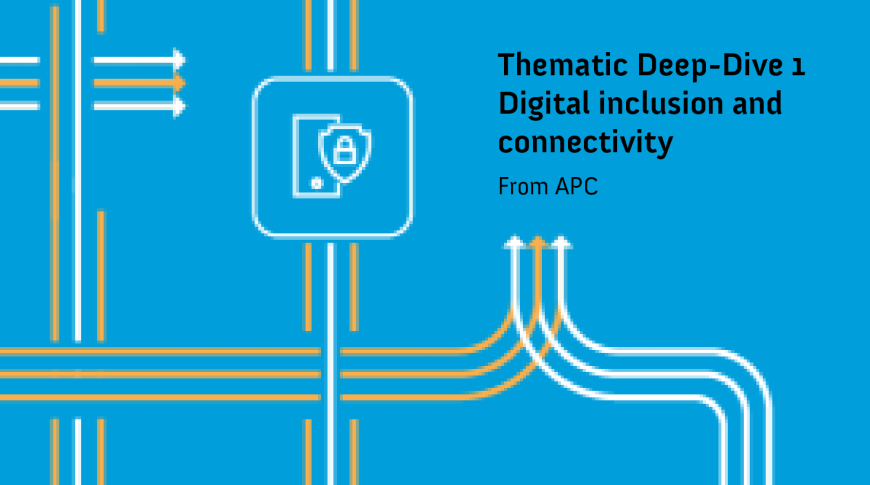
Thank you.
APC believes that the internet is an enabler of human rights, development and social, gender and environmental justice.
We want to highlight:
-
Inclusive participation of communities in policy making concerning access and digital inclusion.
-
Providing space and means for alternative solutions to connectivity that prioritise local and community-led responses.
-
A multistakeholder approach with differentiated roles and responsibilities.
This means:
The international community must ensure that private interests are aligned with public interest and a sustainable digital inclusion that serves as an equaliser and enabler of rights and justice.
When it comes to digital inclusion and connectivity, the how and why are fundamental. Including marginalised people in the digital sphere without the necessary skills and viable participation mechanisms would do more harm than good. The “digital inclusion” of communities for the sole purpose of feeding into market logics exacerbates inequality, oppression and inequity, adding to the environmental crisis as consumption increases.
Bottom-up participation and multistakeholder decision-making processes are crucial for a free and open internet that allows people to exercise individual and collective agency, transform power relations and make access meaningful. People give meaning to connectivity, and there is not a single definition of what "meaningful" means. Affirmative political actions and policies are necessary to foster meaningful participation.
Paraphrasing the Secretary-General of the ITU, "Connecting the remaining unconnected is a different ball-game, and 'business as usual' will not work." Complementary connectivity solutions have proven to be viable. Communities directly affected by the problem are empowered when they become part of the solution, and build their own networks.
Multilateral agencies have started to recognise the role that complementary access solutions play in closing the digital divide.
This is a welcome first step, but it needs to translate into tangible and practical enablers. These enablers are materialising in Argentina and Kenya, where operators’ licences have been created for communities, and public funding is now available for small-scale network startups. We invite others to explore similar processes.
Governments, international organisations, private companies and civil society can facilitate the growth of micro and social enterprises by adopting structures that have proven successful in other sectors of the economy. This includes supporting civic initiatives in small-scale infrastructure, providing training and capacity building for meaningful connectivity, offering tax incentives, and providing access to financing through microfinance institutions and other hybrid funding mechanisms and business models.
Finally, APC reiterates its commitment to the GDC process, and we thank you in advance for the information on the modalities moving forward that could be shared with the different stakeholders in a timely manner, as a means of strengthening our engagement with the process.